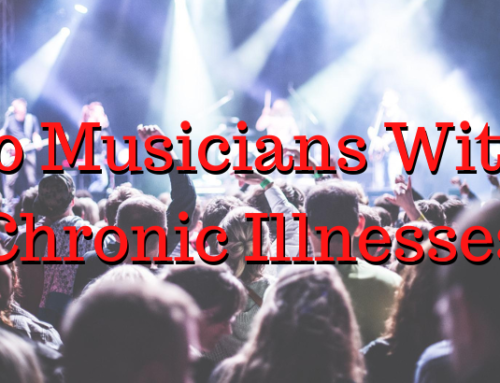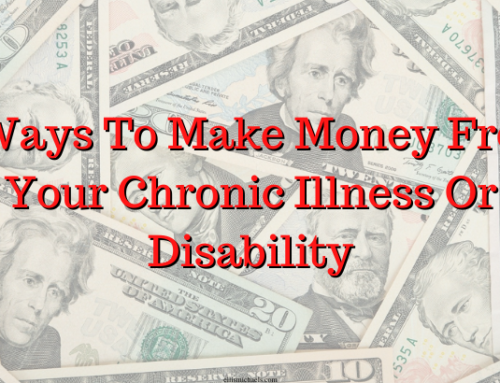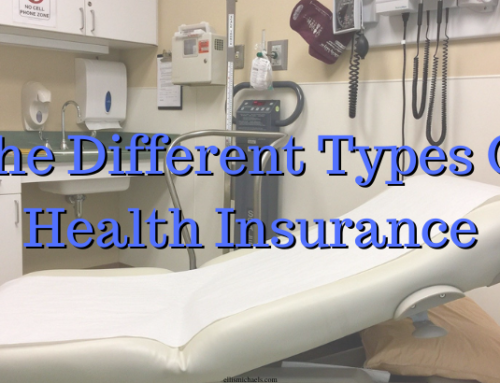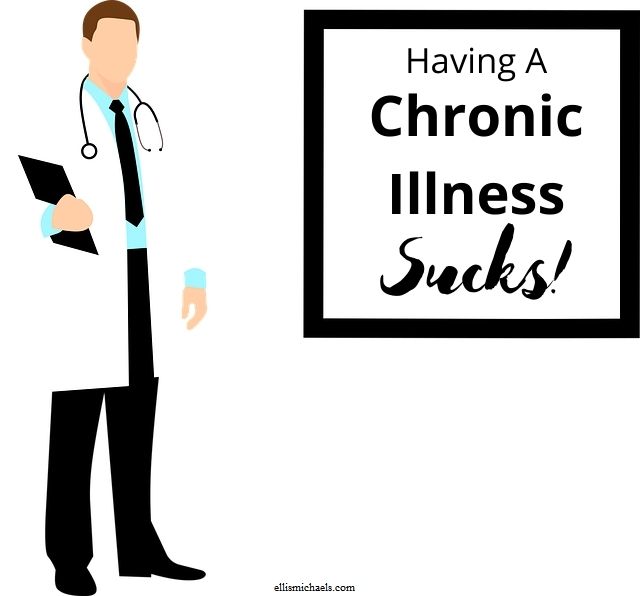When you’re living with a chronic illness, sometimes you can feel incredibly alone. Even when you’re surrounded by people who care about you, none of them really understand what it’s like being you. The only people who can relate are others with chronic illnesses.
Whether you’re living with Crohn’s, Lupus, multiple sclerosis (MS), diabetes, arthritis, or one of the other hundreds of chronic conditions, it can be nice to meet people who can relate to you. Joe Healthy doesn’t know what it’s like to go through life being Joe Ill (that would be a pretty sick rap name, though – no pun intended). Meeting others with chronic illnesses allow you to relate on a whole other level.
Some people just want to make friends with others who are also living with a chronic illness. Some want to make friends with others living with their specific illness. And a lot of people want to find someone to date and possibly marry who knows what it’s like to have a chronic disease.
No matter what you’re looking for, I’m going to tell you where to find it. In this article, we’re going to look at the best places to meet others with chronic illnesses.
What Are You Looking For?
Table of Contents
Are you just looking for friendship? Something more? Or are you unsure of what you’re looking for? It’s okay if you don’t know. There’s nothing wrong with wanting to meet others with chronic illnesses for no particular reason. Sometimes we just want to connect in any way we can.
But if you do know what you’re looking for, it’s usually easier to find it than if you don’t. Put some thought into it if you haven’t already. Try to figure out if you’re just looking for a friend, a romantic partner, a business partner, or something else. Again, it’s okay if you’re unsure. But knowing what you want will make it easier to find it.
Who Are You Looking For?
 Are you looking for someone who shares the same diagnosis as you? Or just someone who has a chronic illness in general?
Are you looking for someone who shares the same diagnosis as you? Or just someone who has a chronic illness in general?
All chronic illnesses can be challenging. But every diagnosis is different and presents unique challenges. Crohn’s has different challenges than Lupus. MS has different challenges than diabetes. Are you looking for someone who has to deal with the same specific challenges as you? Or just someone who can relate to the general challenges of living with a chronic health condition?
Are you looking for a man or a woman? Older, younger, or around the same age? Does it matter how far away they live? These are all things you should consider before you start looking to meet someone with a chronic illness. It’s okay if you don’t, but it’ll be easier if you do.
Where To Meet Others With Chronic Illnesses
Dating can be a struggle for perfectly healthy people. For those of us with chronic health problems, it can be even worse. You can learn about some of our unique struggles here: 7 Dating Challenges For People With Chronic Illnesses.
Having a chronic illness can make you feel alone, but you’re not. In fact, you’re actually in the majority. In the United States, 6 out of every 10 adults are diagnosed with at least one chronic medical condition. And 4 out of every 10 are diagnosed with two-or-more illnesses.1
So, where are these people? Let’s dive right into the best places to meet others with chronic illnesses.
Facebook and Other Online Groups
In my experience, the absolute best place to meet others with the same chronic illness is online support groups. I’ve made a number of meaningful connections through online groups, especially on Facebook (FB). Even though Behcet’s disease is pretty rare, there are several FB groups for people living with it.
 Unless your diagnosis is incredibly rare like kuru or progeria, odds are there are at least one or two Facebook groups for people diagnosed with it. If you’re living with one of the more common chronic illnesses like arthritis, asthma, diabetes, cystic fibrosis, COPD, or Crohn’s, there are many FB groups you can join.
Unless your diagnosis is incredibly rare like kuru or progeria, odds are there are at least one or two Facebook groups for people diagnosed with it. If you’re living with one of the more common chronic illnesses like arthritis, asthma, diabetes, cystic fibrosis, COPD, or Crohn’s, there are many FB groups you can join.
For some of the most common chronic illnesses, there are even FB groups specifically for dating. DiaSingles, for example, is a FB group for diabetic singles to meet and mingle. That group has almost 2,000 members. It’s just one example of countless FB groups for people with diabetes to connect.
If you’re looking for someone who shares a particular diagnosis, you’ll probably have better luck finding them here than anywhere else. There are over 10 million FB groups and over 1.4 billion people who use them every month.2
Odds are you’re already on Facebook. Of the nearly 330 million people living in America,3 over 220 of them use FB.4 But if you’re not on FB and want to meet others with your diagnosis, you should consider joining the massive social network.
 If you are on Facebook, search for and join groups for people with your diagnosis. Once your request to join is accepted, introduce yourself with a short post. In my personal experience and what I’ve heard from others, you’ll be met with nothing but kindness and acceptance. As one friend of mine put it when she first joined a Behcet’s group, “I felt like I’d finally found a home.”
If you are on Facebook, search for and join groups for people with your diagnosis. Once your request to join is accepted, introduce yourself with a short post. In my personal experience and what I’ve heard from others, you’ll be met with nothing but kindness and acceptance. As one friend of mine put it when she first joined a Behcet’s group, “I felt like I’d finally found a home.”
Don’t be afraid to reach out to others in the group. Interact, comment on posts you like, and maybe even make the occasional post yourself. You’ll spark up conversations that may lead to friendships and possibly more down the road. While you’re bound to run into the occasional jerk online (just like in real life), people in chronic illness FB groups are overwhelmingly positive, accepting, and encouraging.
Facebook is definitely the biggest place where people with chronic illnesses hang out online, but it’s not the only place. You can meet others with your diagnosis on other social media platforms like Instagram, Twitter, and Reddit. Just search for whatever your diagnosis is to connect with others who have it.
If you’re not looking to meet others with your particular illness but just a chronic illness in general, there are plenty of online groups out there specifically for this purpose. There are even groups for people looking to form a romantic relationship with someone who also has a lifelong disease..
Whatever you’re looking for, there’s a good chance you’ll find it in an online group. Whether it’s a support group, a dating group, or something else, millions of people use online groups to connect around the world. But what if you’re looking for something more local and more on the romantic side of things rather than just friendly? That’s when you should think about using one or more dating apps.
Dating Apps
A lot of people, when they hear the word Tinder, they cringe. It conjures up images of meaningless one-night stands, heartless catfishing, and other bad outcomes. But Tinder and other dating apps can be a great way to meet other locals who are living with a chronic illness. Seriously.
 One of the biggest advantages of using a dating app is that you can get your diagnosis out there before exchanging a single word with anyone. Although it varies from app to app, they all let you write at least a few words about yourself that are displayed under your picture(s). Though you certainly don’t have to, you can write your diagnosis or that you’re looking for someone who also has a chronic illness.
One of the biggest advantages of using a dating app is that you can get your diagnosis out there before exchanging a single word with anyone. Although it varies from app to app, they all let you write at least a few words about yourself that are displayed under your picture(s). Though you certainly don’t have to, you can write your diagnosis or that you’re looking for someone who also has a chronic illness.
By doing this, you can weed out all the people who aren’t interested in dating someone with an illness automatically. If I put in my description I have Behcet’s disease, then I know that every woman who swipes right is okay with that fact.
But not only will you weed out people who don’t want to date someone with a chronic illness, you’ll attract people who do. I promise you, you’re not the only one who wants to find someone who is also living with a lifelong disease. There are a lot of people out there looking for the same thing.
When people think of dating apps and websites, they usually think of Tinder and Match.com. But there are tons of other dating apps and websites out there. And each one is different. Some, like OKCupid for example, allow you to create a detailed profile about yourself. You could practically write out your entire autobiography on OKCupid if you wanted to.
Other dating apps and websites only allow room for you to write a sentence or two about yourself. Tinder, for example, allows you to use 500 characters. Bumble, another popular dating app, allows even less. On Bumble, you only get to use 300 characters to describe yourself.
If you’re looking to meet someone close to you who also has a chronic illness, dating apps and websites are the way to go. But which one should you use? I’d recommend trying at least 3 or 4 different dating apps to see which one(s) you like the best. The wider the net you cast, the more likely you are to finding what you’re looking for.
There are dozens, if not hundreds, of dating apps out there with more coming out all the time. Let’s take a look at a few of them now. We’ll start with a couple dating apps that are designed specifically for people with illnesses and then look at some general ones.
Dating Apps Specifically For People With Chronic Illnesses/Disabilities
I couldn’t find many dating apps specifically for people with chronic conditions, but there are a few of them out there – or were, I should say. Of the several dating apps specifically for people with serious conditions I could find, only a couple of them still exist.

Some people might interpret that to mean there isn’t a market for dating apps specifically for people with chronic diseases. But I know this to be false. There’s a huge market of single, lonely people with chronic illnesses just dying to meet someone who can relate to their unique struggles. Just between the ages of 18 and 35 – prime dating time – the U.S. Census Bureau estimates that there are 38.6 million Americans living with disabilities.5
Fortunately, there are other ways to meet others with disabilities that we’ll go over in just a bit. But right now, let’s take a look at a couple of apps that are made for people living with chronic illnesses.
Gusty Dating
This is a dating app for people living with gastrointestinal (GI) and digestive problems. Here you’ll find singles living with Crohn’s disease, celiac disease, irritable bowel syndrome (IBS), ulcerative colitis (UC), inflammatory bowel disease (IBD), and other GI disorders.
If you’re living with a chronic digestive disease and looking for someone in the same boat, Gusty might be a great way to find them. However, while some users have written very positive reviews about the app, others have complained about how you need to subscribe to access all of the app’s features.
But if you’re living with a GI disease and looking for a partner who also is, I’d recommend at least checking Gusty out. Of all the possible chronic illnesses a person can have, there’s something especially painful and embarrassing about digestive diseases. Finding someone who is going through the same thing as you can be a huge relief. Not only do you not have to explain your symptoms: you know that they know what it actually feels like.
Glimmer
This isn’t a dating app. Technically, it’s not even a dating website. Glimmer is, in their own words, “a social and relationship website … for people living with a disability and their families.” In other words, Glimmer is a place for people with various illnesses to come together to form friendships and maybe a lot more.
 The thing I like most about Glimmer is that it does not discriminate between physical and mental illnesses. Anyone with any type of disability is welcome. And what’s even better: Glimmer also allows users who don’t have a disability to join.
The thing I like most about Glimmer is that it does not discriminate between physical and mental illnesses. Anyone with any type of disability is welcome. And what’s even better: Glimmer also allows users who don’t have a disability to join.
At first, this might seem strange. Why would a website designed to help connect people with disabilities include people without disabilities? Believe it or not, there are lots of perfectly healthy people out there with big hearts who actually want to date someone with a disability.
Take a woman grew up with a blind father, for example. Maybe she actually wants to date a blind man because it’s familiar to her and reminds her of her beloved dad. I think it’s great that there’s a website out there for people like her.
On Glimmer, 65% of its users have some sort of disability while 35% do not.6 You can choose to only interact with people who have the same diagnosis as you or with everyone. If you’re looking to meet someone with your diagnosis or just someone who understands, give Glimmer a try.
Regular Dating Apps For People With Chronic Disabilities/Illnesses
There is no shortage of dating apps out there. It seems like a new one pops up every week. While it would be impossible to discuss them all here, let’s take a quick look at couple of popular dating apps and what you can do to maximize your chances of finding what/who you’re looking for.
Tinder
You can’t talk about dating apps without talking about Tinder. You swipe right, they swipe right, you message back and forth for a while, eventually meet, and slowly fall in love – or maybe quickly fall in bed together.
 Tinder definitely has a reputation for being a place to find quick, emotionless hookups – and rightly so. It can be used for that. But with such a wide user base, it can also be used to find lasting, meaningful relationships. And if you want that relationship to be with someone who also has a chronic illness, believe it or not, Tinder can be a great place to look.
Tinder definitely has a reputation for being a place to find quick, emotionless hookups – and rightly so. It can be used for that. But with such a wide user base, it can also be used to find lasting, meaningful relationships. And if you want that relationship to be with someone who also has a chronic illness, believe it or not, Tinder can be a great place to look.
Tinder boasts around eight-million users.7 Eight million. That’s a lot of people. And considering the fact that about 20% of Americans have some sort of disability,8 Twitter likely has well-over-a-million users with some form of illness. In other words, there are plenty of disabled-and-chronically-ill fish in the Tinder Sea.
If your goal is to find a date who also has a chronic illness, mention it in your profile. Tinder gives you enough room to write a short paragraph about yourself and what you’re looking for. Mention that you have an illness and that you’re looking for someone who also does.
Of course, all the people on Tinder who aren’t looking for someone with a chronic illness are going to swipe left. But the ones who do swipe right, you already know that they know about your illness. For a lot of people, this relieved a huge amount of pressure right off the bat.
OKCupid
Personally, this is my favorite dating app/site. OKCupid has an app that you can download for your Android or iPhone, but you can also use their website. While I’ve had success with several dating apps/sites, OKCupid remains my favorite and I’ll tell you why.
Unlike Tinder, Bumble, and many other dating apps, OKCupid gives you plenty of room to describe yourself, what you’re looking for, you interests, likes, dislikes, and so much more. They also have tons of questions you can answer on a variety of subjects. When you match with someone, you can see which answers you have in common. Here are just a few examples of questions you can (but don’t have to) answer:
 Have you ever fantasized about hooking up with a coworker?
Have you ever fantasized about hooking up with a coworker?- How important are your political beliefs to you?
- Could you live without the internet?
- Would you date someone who was always optimistic?
- Does music have a big influence in your life?
- Do you use foul language?
I have no idea how many questions there are on OKCupid, but there are a lot of them. Just about all of them seem to either be true-or-false or multiple-choice questions. Based on how your answers compare to your matches, OKCupid gives you a compatibility percentage. While I don’t think you can sum up two people’s compatibility with a number, it is pretty cool.
But back to my original point: OKCupid lets you write a lot about yourself. Unlike Tinder where your bio is limited to only 500 characters, OKCupid lets you write paragraph after paragraph about yourself and what you’re looking for. That gives people with chronic illnesses like us plenty of room to discuss our situations in detail if we want to.
Bumble
I’m only briefly going to mention this dating app, but I believe it’s worth mentioning for one reason. Bumble is like Tinder in almost every way except one: the woman has to make the first move.
 On Tinder, OKCupid, Plenty of Fish (POF), and all the other dating apps, as soon as two people match, they can message each other. But when two people match on Bumble, the guy can’t message the girl unless she messages him first. If the woman doesn’t message within 24 hours, the two are unmatched.
On Tinder, OKCupid, Plenty of Fish (POF), and all the other dating apps, as soon as two people match, they can message each other. But when two people match on Bumble, the guy can’t message the girl unless she messages him first. If the woman doesn’t message within 24 hours, the two are unmatched.
I love this idea in principle and I love it in practice. In general, men are typically the aggressors when it comes to dating. I’m not saying this is always the case but, on apps like Tinder, it’s usually the guy who messages the girl first. On Bumble, the woman has to make the first move or it doesn’t get made at all.
Aside from that one feature, Bumble is very similar to Tinder. And it has a large user base of over five-million people making Bumble one of the most popular dating apps, second only to Tinder.7
In-Person Groups
If you are just looking to make friends right now or are unsure of what you’re looking for, there are plenty of in-person support groups for people with chronic illnesses out there. There are even in-person dating groups for people with lifelong diseases.
In-person groups might be a great option for you or a terrible one depending on a couple of factors. The first is where you live. If you’re in or near a big city, you’ll find a lot more groups to join than if you live in a rural area. I live just south of Boston and have no trouble finding chronic illness groups in my area.
Another factor is how physically limited you are by your illness. If you can’t get out of bed, you obviously won’t be able to join an in-person group. For those of you who are severely disabled, online groups are probably the way to go.

So how do you find these in-person groups? One of the best places to find them is through Meetup.com. This is a website/app that allows like-minded people to connect and meetup in real life. You just type in your location and what type of group you’re looking for and Meetup will show you all of the matching groups in your area. They have many types including support, friendship, romance, and business groups.
Self-help support groups can be a great place to meet others with chronic illnesses. There’s no shortage of them around the country (and world). For every type of physical and mental illness that exists, there’s a support group for it out there somewhere. To find them, use a search engine or a database like the one at Psychology Today. You can search for different types of support groups based on your location.
Conclusion
Loneliness is one of the worst feelings in the world and one that many people with chronic illnesses are familiar with. Fortunately, in this day and age it’s never been easier to find others living with chronic medical conditions. Don’t be afraid to reach out, connect, and start meeting people. You may find yourself developing meaningful friendships that are as chronic and enduring as your illness – and possibly even more.
Have you developed friendships or relationships with others who also have a chronic illness? If so, where did you meet? Please leave your answers in the comments section at the bottom. And if you haven’t already, please join the Ellis Michaels mailing list below.
Join the Ellis Michaels mailing list to stay up to date with the latest news about chronic illnesses, recent articles and other publications, and more.
References
1Chronic diseases in America. (2019, Oct. 23). National Center for Chronic Disease Prevention and Health Promotion (NCCDPHP): Centers for Disease Control and Prevention (CDC). Retrieved April 15, 2021 from https://www.cdc.gov/chronicdisease/resources/infographic/chronic-diseases.htm
2Noyes, D. (2020, August). The top 20 valuable Facebook statistics – updated August 2020. Retrieved April 15, 2021 from https://zephoria.com/top-15-valuable-facebook-statistics/
3Quick facts: United States. (2019, July 1). United States Census Bureau. Retrieved April 15, 2021 from https://www.census.gov/quickfacts/fact/table/US#
4Clement, J. (2020, July 14). Number of Facebook users in the United States from 2017 to 20205 (in millions). Statista.com. Retrieved April 15, 2021 from https://www.statista.com/statistics/408971/number-of-us-facebook-users/
5Taylor, D. (2018, Nov.). Americans with disabilities: 2014: Household economic studies. Current population reports. Census.gov. Retrieved April 15, 2021 from https://www.census.gov/content/dam/Census/library/publications/2018/demo/p70-152.pdf
6Schnitzler, N. (2017, Feb. 14). Dating app Glimmer wants to help folks with disabilities find love. Chicago Tribune. Retrieved April 15, 2021 from https://www.chicagotribune.com/business/blue-sky/ct-glimmer-dating-app-bsi-20170214-story.html
7Most popular online dating apps in the United States as of September 2019, by audience size (in millions). (2020, July 16). Statista. Retrieved April 15, 2021 from https://www.statista.com/statistics/826778/most-popular-dating-apps-by-audience-size-usa/
8Americans with disabilities. (1993, Feb.). Census.gov. Retrieved April 15, 2021 from https://www.census.gov/prod/1/statbrief/sb94_1.pdf







Looking for female that has Sarcoidosis and would like to compare promblems it has giving them
I’m sure you could find an app, FB group, or some other place to meet women with sarcoidosis. If not that diagnosis specifically, I know there are plenty of general chronic illness dating groups out there. I hope you find who/what you’re looking for!